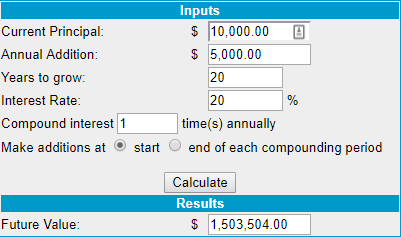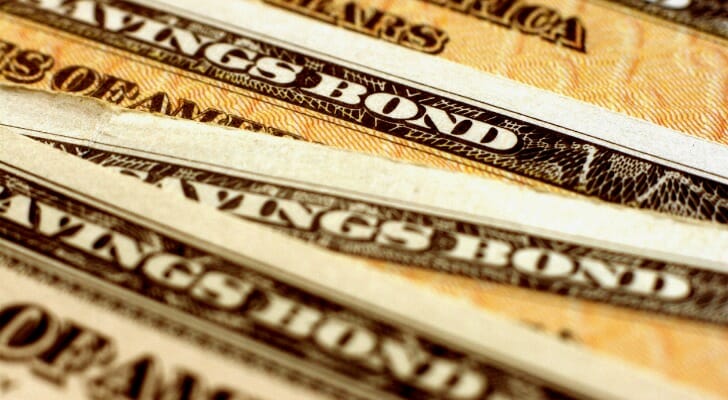
Investing now in dow futures is like gambling. If a color wins, you get a huge payout. Unlike stocks, dow futures are not calculated using a weighted arithmetic average. The Dow index will close at midnight and you won't know what stock will take the top spot. And you can lose your money just as easily. But the rewards can be substantial if you play your cards right.
Dow futures trading is similar to making a color wager in roulette
Trades in Dow futures involve risk and uncertainty as with any investment. You are betting that the DJIA's final settlement price will prevail. If you are wrong you will have to pay the other party the DJIA value. The person selling the future makes money if it falls while the buyer makes money if it goes up. The futures market trading is not for novice investors. Only experienced investors should trade in it.

If you are uncertain about the exact amount of your investment, try a chart or using stock calculators. A Dow futures contract will equal the DJIA ten-fold. Its value is $250,000 when you place a $5 bet on DJIA. The multiplier that you use will affect the amount of money you earn.
Payouts can get very high
Trading in Dow futures today can be a great way to get in on the action before the market opens. Dow futures open an hour earlier than the market at 8:20 a.m. central and eastern time. If you have enough money, they can be very lucrative. But you should be aware that the payouts can be quite steep and are not suitable for everyone. This type of investment should only be made if you're comfortable taking large risks.
Trading Dow futures resembles betting on roulette. Once you've picked your numbers, you have to wait for the contract to settle. If you are wrong, the other party will owe you the difference in Dow value. If the index rises, you make money, and if it goes down, you'll lose money.
Dow futures do not use a weighted arithmetic mean.
If you are new to the world stock, you might be wondering why Dow futures don't use a "weighted Arithmetic Average" calculation. It is important to note that the Dow Jones Industrial Average, (DJIA), is a price-weighted indicator. This means that high-priced stocks have an impact on the index's value more than lower-priced ones. In addition, the method of calculation of the index has evolved over time to account for mergers and acquisitions and stock splits, which are intended to be a comprehensive measure of the US economy.

The Dow calculations work in the same manner. The index's value moves by a certain amount for every change in the price of each individual stock in its index. As a result, the value of a single stock increases or decreases by a certain amount. This calculation is used for gauging the performance of a sector's market. It is also used for determining the stock's price. There are many scenarios that could affect the DJIA. These include stock splits.
FAQ
What is the role and function of the Securities and Exchange Commission
SEC regulates brokerage-dealers, securities exchanges, investment firms, and any other entities involved with the distribution of securities. It enforces federal securities regulations.
How do you choose the right investment company for me?
Look for one that charges competitive fees, offers high-quality management and has a diverse portfolio. The type of security in your account will determine the fees. Some companies charge no fees for holding cash and others charge a flat fee per year regardless of the amount you deposit. Others charge a percentage based on your total assets.
It is also important to find out their performance history. Poor track records may mean that a company is not suitable for you. Avoid companies that have low net asset valuation (NAV) or high volatility NAVs.
It is also important to examine their investment philosophy. In order to get higher returns, an investment company must be willing to take more risks. If they are unwilling to do so, then they may not be able to meet your expectations.
How does inflation affect the stock market
Inflation affects the stock markets because investors must pay more each year to buy goods and services. As prices rise, stocks fall. You should buy shares whenever they are cheap.
How do I invest in the stock market?
Brokers allow you to buy or sell securities. Brokers can buy or sell securities on your behalf. You pay brokerage commissions when you trade securities.
Brokers usually charge higher fees than banks. Banks offer better rates than brokers because they don’t make any money from selling securities.
To invest in stocks, an account must be opened at a bank/broker.
Brokers will let you know how much it costs for you to sell or buy securities. The size of each transaction will determine how much he charges.
Your broker should be able to answer these questions:
-
the minimum amount that you must deposit to start trading
-
How much additional charges will apply if you close your account before the expiration date
-
What happens if your loss exceeds $5,000 in one day?
-
how many days can you hold positions without paying taxes
-
How much you can borrow against your portfolio
-
How you can transfer funds from one account to another
-
What time it takes to settle transactions
-
How to sell or purchase securities the most effectively
-
how to avoid fraud
-
How to get help for those who need it
-
Can you stop trading at any point?
-
Whether you are required to report trades the government
-
Reports that you must file with the SEC
-
What records are required for transactions
-
If you need to register with SEC
-
What is registration?
-
How does it affect me?
-
Who must be registered
-
When should I register?
What's the difference between the stock market and the securities market?
The whole set of companies that trade shares on an exchange is called the securities market. This includes options, stocks, futures contracts and other financial instruments. Stock markets can be divided into two groups: primary or secondary. Stock markets that are primary include large exchanges like the NYSE and NASDAQ. Secondary stock market are smaller exchanges that allow private investors to trade. These include OTC Bulletin Board Over-the-Counter (Pink Sheets) and Nasdaq ShortCap Market.
Stock markets are important as they allow people to trade shares of businesses and buy or sell them. The price at which shares are traded determines their value. New shares are issued to the public when a company goes public. Investors who purchase these newly issued shares receive dividends. Dividends are payments made to shareholders by a corporation.
Stock markets not only provide a marketplace for buyers and sellers but also act as a tool to promote corporate governance. Boards of Directors are elected by shareholders and oversee management. Boards ensure that managers use ethical business practices. In the event that a board fails to carry out this function, government may intervene and replace the board.
Statistics
- Ratchet down that 10% if you don't yet have a healthy emergency fund and 10% to 15% of your income funneled into a retirement savings account. (nerdwallet.com)
- For instance, an individual or entity that owns 100,000 shares of a company with one million outstanding shares would have a 10% ownership stake. (investopedia.com)
- Our focus on Main Street investors reflects the fact that American households own $38 trillion worth of equities, more than 59 percent of the U.S. equity market either directly or indirectly through mutual funds, retirement accounts, and other investments. (sec.gov)
- US resident who opens a new IBKR Pro individual or joint account receives a 0.25% rate reduction on margin loans. (nerdwallet.com)
External Links
How To
How to Invest Online in Stock Market
Stock investing is one way to make money on the stock market. You can do this in many ways, including through mutual funds, ETFs, hedge funds and exchange-traded funds (ETFs). The best investment strategy depends on your investment goals, risk tolerance, personal investment style, overall market knowledge, and financial goals.
You must first understand the workings of the stock market to be successful. This involves understanding the various types of investments, their risks, and the potential rewards. Once you are clear about what you want, you can then start to determine which type of investment is best for you.
There are three types of investments available: equity, fixed-income, and options. Equity is the ownership of shares in companies. Fixed income is debt instruments like bonds or treasury bills. Alternatives are commodities, real estate, private capital, and venture capital. Each option comes with its own pros and con, so you'll have to decide which one works best for you.
Once you figure out what kind of investment you want, there are two broad strategies you can use. One strategy is "buy & hold". You purchase some of the security, but you don’t sell it until you die. The second strategy is "diversification". Diversification means buying securities from different classes. You could diversify by buying 10% each of Apple and Microsoft or General Motors. You can get more exposure to different sectors of the economy by buying multiple types of investments. You can protect yourself against losses in one sector by still owning something in the other sector.
Risk management is another key aspect when selecting an investment. Risk management will allow you to manage volatility in the portfolio. If you were only willing to take on a 1% risk, you could choose a low-risk fund. On the other hand, if you were willing to accept a 5% risk, you could choose a higher-risk fund.
Learn how to manage money to be a successful investor. Planning for the future is key to managing your money. Your short-term, medium-term, and long-term goals should all be covered in a good plan. That plan must be followed! Don't get distracted with market fluctuations. Stay true to your plan, and your wealth will grow.